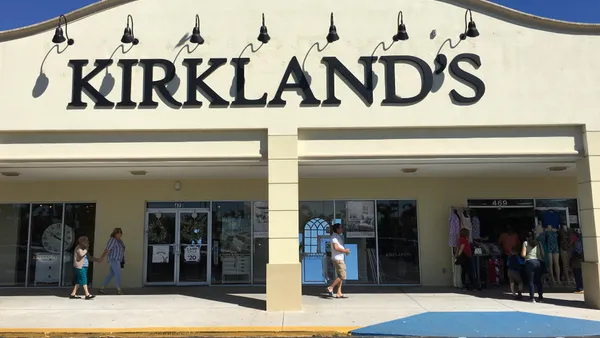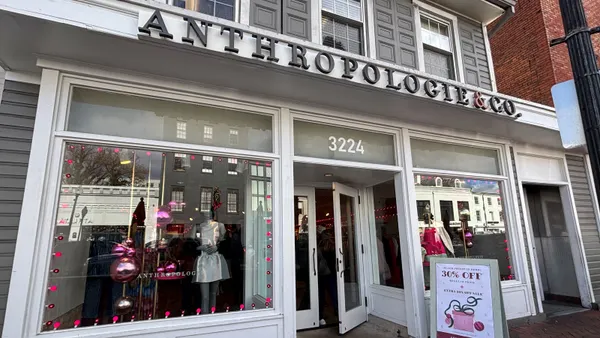UPDATE: June 18, 2019: Jonathan Litt, founder and CIO of Land & Buildings, on Tuesday published a letter to Hudson’s Bay’s special committee, calling the offer from Executive Chairman Richard Baker "woefully inadequate." He noted that the deal was unlikely to get majority approval from the remaining shareholders at the current price per share, and took issue with the fact that the deal was being funded primarily by the sale of company assets, including the CA $1.5 billion from the sale of its European joint venture. "Based on our calculations, the Management Buyout Group could apply the entire C$1.5 billion to buy out the minority shareholders at C$18 per share, nearly twice the amount of the current offer," he wrote.
The letter also called for the special committee to undertake "a robust strategic alternatives process, given the iconic nature of HBC’s real estate that would attract a deep potential buyer pool," and hire an independent investment bank without business or personal relationships with the company. Hudson’s Bay did not immediately respond to Retail Dive’s request for comment.
Dive Brief:
-
A number of Hudson's Bay Company shareholders who collectively own about 57% of its outstanding common shares on Monday submitted a proposal to take the department store conglomerate private for 9.45 Canadian dollars per share ($7.12 at Monday's exchange rate), payable in cash, according to a company press release.
-
The group includes HBC Governor and Executive Chairman Richard Baker; private equity firms Rhône Capital L.L.C., Hanover Investments (Luxembourg) S.A. and Abrams Capital Management, L.P.; and coworking startup WeWork Property Advisors. WeWork bought HBC's Lord & Taylor flagship this year for $850 million.
-
HBC on Monday announced that its board has formed a special committee of independent directors to review the proposal, according to an HBC press release. The offer represents a premium of 48% to HBC's closing share price on the Toronto Stock Exchange on June 7 and a premium of 39% to its 20-day average closing price, according to both press releases.
Dive Insight:
This proposed maneuver is set to be financed at least in part with proceeds stemming from HBC's previous deals in Europe.
In another separate announcement on Monday, HBC said that it has agreed to sell its remaining 50% interest in its German real estate joint venture and 49.99% interest in its European retail joint venture to partner, SIGNA, for $1.5 billion, marking HBC's exit from Germany. A portion of that transaction's net proceeds will go to fully repay its outstanding $436 million term loan, the company said. But other of the net cash proceeds of that transaction, along with debt financing and the shareholder group's equity interest, would also fund the take-private transaction, the group said.
HBC CEO Helena Foulkes called that agreement "an exciting milestone" and a "bold action" that will allow the company "to fully focus our resources on HBC's North American operations, including our best growth opportunities — Saks Fifth Avenue and Hudson's Bay."
But it remains to be seen how much of a consideration retail will really be as the company, and its majority shareholder Baker, (who entered the department store business as a real estate developer when he bought Lord & Taylor in 2006), firm up all their deals, according to Mark Cohen, director of retail studies at Columbia University's Graduate School of Business.
"In the absence of a viable operating strategy, what companies like this do is they buy things," he told Retail Dive in an interview. "They bought Gilt — that was a disaster. They went on the off-price bandwagon with Saks Off Fifth to great fanfare — that was pretty much a dud. There was the ridiculous investment in Europe. So then what do you do? You start to sell things. The sale of Lord and Taylor on Fifth Avenue was a substantial transaction, but it signaled the death knell for Lord and Taylor. So you cash out — that's exactly what this looks like, an opportunity for Baker."
Cohen is skeptical that the group aiming to take HBC private is looking to escape from the glare of Wall Street in order to pursue a turnaround, which many observers said would help Nordstrom in its ill-fated take-private attempt last year. "[Hudson's] Bay got an enormous ride out of the failure of Sears in Canada and of Target in Canada, but that ride's over," he said. "Nordstrom is a profitable company with two profitable enterprises running side by side, while at HBC, there's Saks and that's it. Are they going to turn Saks into an international juggernaut? That's not going to happen. Is this a slow-rolling liquidation? In my opinion it is."















